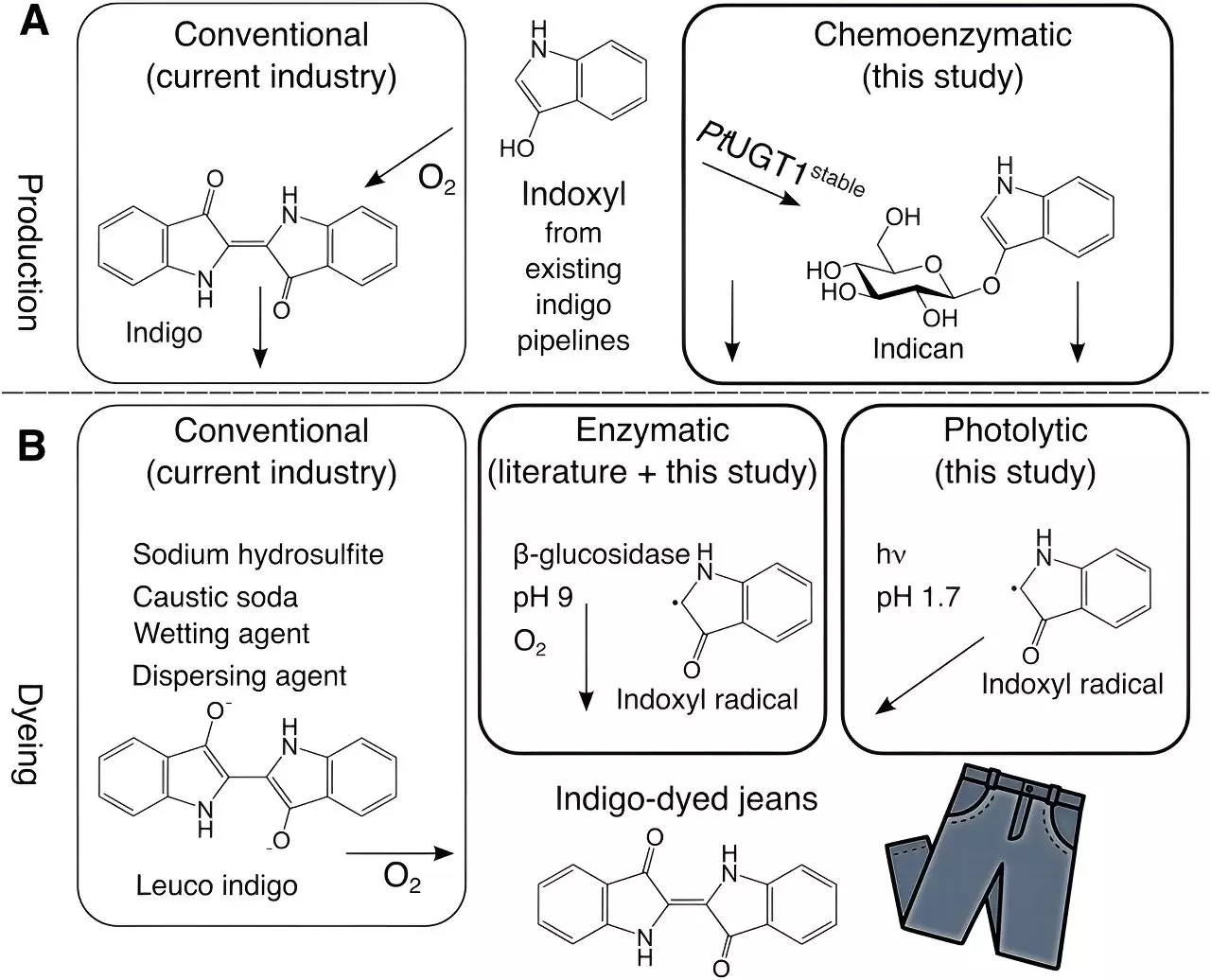The denim industry, worth billions of dollars, has long been criticized for its excessive pollution levels. The production of blue jeans in various shapes and sizes has led to significant environmental damage. Traditional indigo dye, which is commonly used in the industry, requires toxic chemicals, large amounts of water, and is associated with substantial carbon dioxide emissions. These factors have raised concerns about the sustainability of denim production.
Recent research published in the journal Nature Communications offers a promising solution to the environmental challenges posed by traditional indigo dye. Scientists have proposed using Indican, a colorless compound derived from indigo-producing plants, as a sustainable alternative. By replacing classic indigo dye with Indican, researchers believe that the environmental and societal impacts of dyeing jeans could be reduced by up to 90%. Indican does not require toxic chemicals for production, making it a more eco-friendly option.
The research team engineered a variant of an enzyme found in indigo-producing plants to enable the industrial-scale production of Indican. Unlike synthetic indigo, the production of Indican does not involve the use of polluting petrochemicals. When Indican is used for dyeing, it can be dissolved in water and activated with either an enzyme or exposure to light. This innovative approach to dyeing can significantly reduce the environmental damage caused by traditional indigo dyeing.
If Indican were to replace traditional indigo dye in the production of the nearly four billion jeans traded annually, there could be a significant reduction in toxic waste and global CO2 emissions. The study suggests that light-driven dyeing with Indican could decrease environmental damage by 73%, while using the enzyme could slash the impacts by up to 92%. Despite the potential benefits of using Indican, the researchers acknowledge some limitations, such as the need for facilities to simulate production at scale and the slightly higher cost compared to traditional dye.
The Future of Sustainable Clothing
As consumers increasingly demand environmentally friendly products, Indican could offer a commercially viable and sustainable alternative to traditional indigo dye. The study emphasizes the importance of adopting innovative solutions to reduce the environmental footprint of the denim industry. By revolutionizing the way jeans are dyed, Indican has the potential to lead the industry towards a more sustainable future.


Leave a Reply